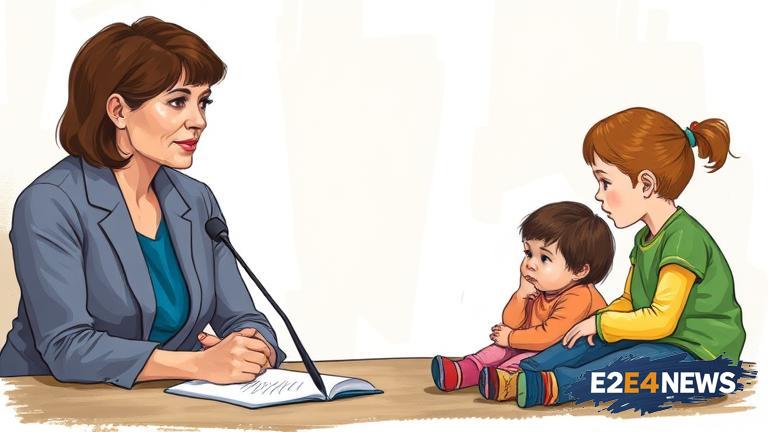The Idaho Health and Welfare director has announced a new focus on early childhood learning and foster care, recognizing the critical importance of these areas in shaping the state’s future. With a growing awareness of the long-term benefits of early childhood education, the director aims to prioritize initiatives that support young children’s cognitive, social, and emotional development. This includes expanding access to high-quality preschool programs, increasing funding for early childhood education, and providing resources for parents and caregivers to support their children’s learning. Additionally, the director is committed to reforming the state’s foster care system, which has faced criticism for its handling of vulnerable children. The goal is to provide more stable and supportive placements for foster children, reduce the risk of trauma and abuse, and ensure that these children receive the care and services they need to thrive. To achieve this, the director plans to increase funding for foster care services, recruit and retain more foster families, and implement evidence-based practices to support the unique needs of foster children. The director’s priorities are informed by research showing that early childhood experiences have a profound impact on later life outcomes, including educational achievement, economic mobility, and mental and physical health. By investing in early childhood learning and foster care, Idaho aims to break the cycle of poverty, improve health outcomes, and create a more prosperous and equitable future for all its citizens. The director’s initiatives have been welcomed by advocates for children and families, who have long called for greater investment in these areas. However, some critics have raised concerns about the potential costs and implementation challenges of these reforms. Despite these challenges, the director remains committed to prioritizing the needs of Idaho’s most vulnerable populations, recognizing that their well-being is essential to the state’s long-term prosperity. The director’s focus on early childhood learning and foster care is part of a broader effort to reform Idaho’s social services and improve outcomes for children and families. This includes initiatives to reduce child poverty, improve access to healthcare, and support families in crisis. By working together with community partners, lawmakers, and other stakeholders, the director aims to create a more comprehensive and supportive system for Idaho’s children and families. The director’s priorities are also informed by a growing recognition of the importance of trauma-informed care and the need to address the social determinants of health. This includes recognizing the impact of adverse childhood experiences (ACEs) on later life outcomes and providing services that support children’s emotional and psychological well-being. Furthermore, the director is committed to increasing diversity and cultural competence within the state’s social services, recognizing that Idaho’s growing diversity requires a more nuanced and responsive approach to supporting children and families. The director’s initiatives have the potential to make a significant impact on Idaho’s most vulnerable populations, and their success will depend on the state’s ability to work together to prioritize the needs of its children and families. As the director moves forward with these reforms, they will be closely watched by advocates, lawmakers, and community leaders, who are eager to see the positive impact that these initiatives can have on Idaho’s future. The state’s commitment to early childhood learning and foster care reform is a critical step towards creating a more just and equitable society, and its success will have far-reaching consequences for generations to come. With the director’s leadership and vision, Idaho is poised to become a national model for innovative and effective approaches to supporting children and families. The director’s focus on early childhood learning and foster care is a testament to the state’s growing recognition of the importance of investing in its most valuable resource: its children. By prioritizing their needs and well-being, Idaho is taking a critical step towards creating a brighter, more prosperous future for all its citizens.
